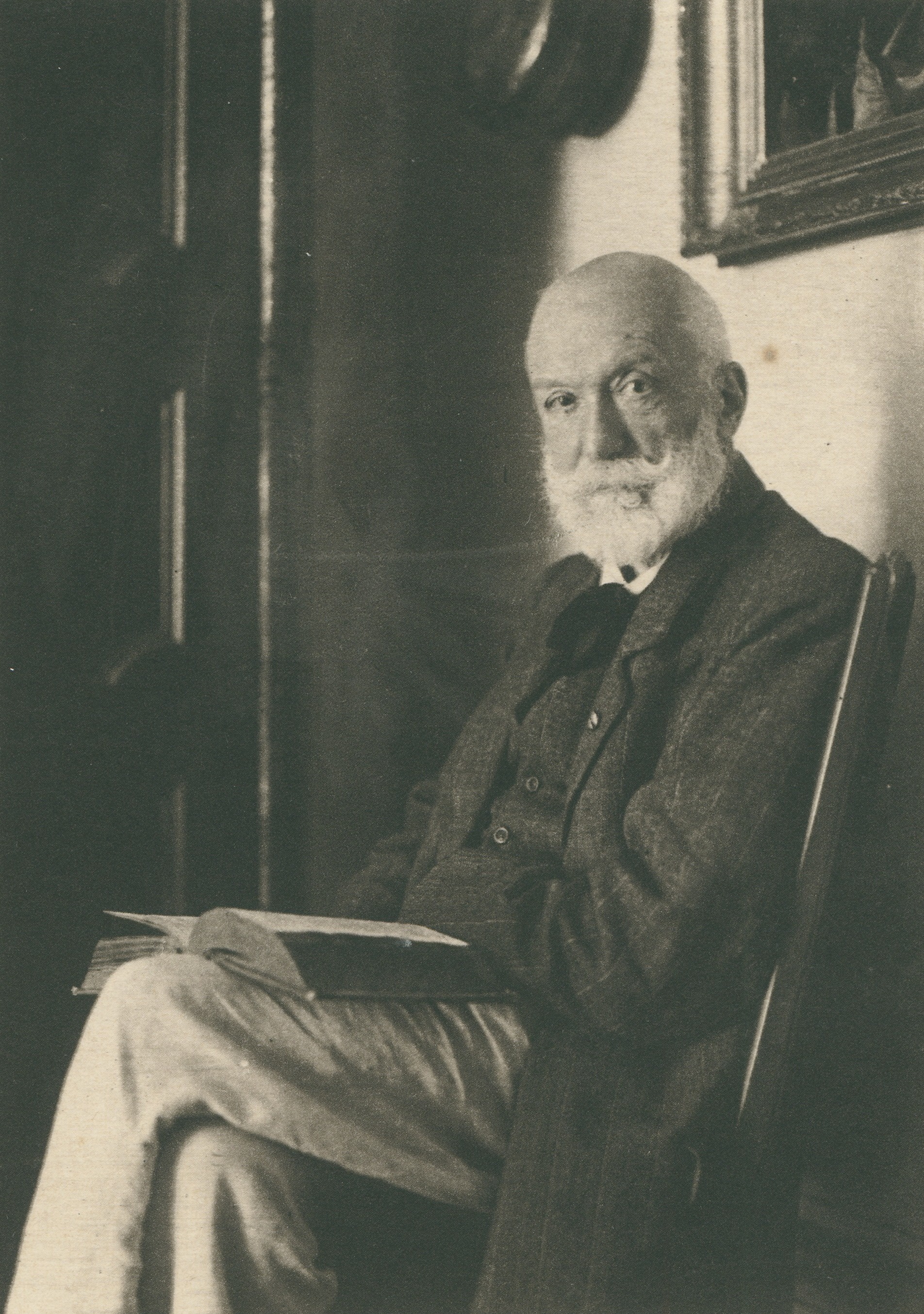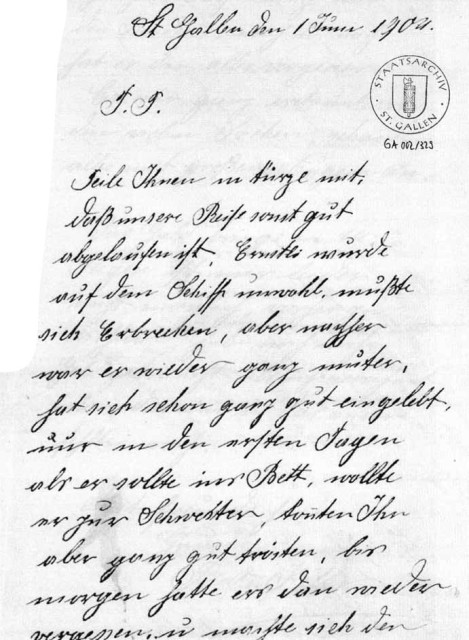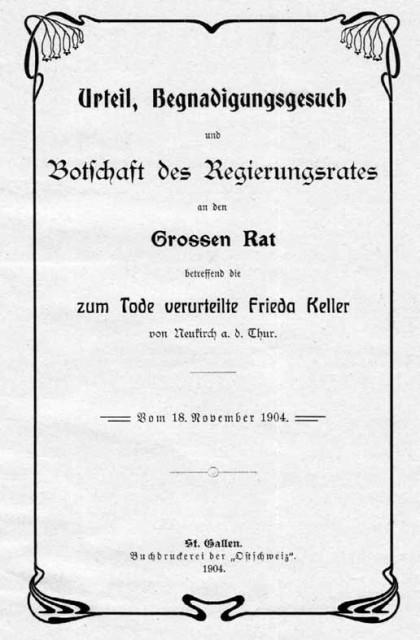Frieda
English > Characters > Demonic characters > Frieda
Context
Frieda enters the novel at Satan's ball in chapter 23. She's young, about twenty, «of remarkably beautiful figure, but with somehow restless and importunate eyes». She adores balls and keeps dreaming, according to Korovyev «of complaining about her handkerchief». There would be a chambermaid assigned to her «who for thirty years has been putting a handkerchief - a blue-bordered one - on her night table during the night. She wakes up and the handkerchief is there. She's tried burning it in the stove and drowning it in the river, but nothing helps».
Koroviev told Margarita that the ceremony with the handkerchief was a punishment for something Frieda did thirty year before. She worked in a cafe. The owner once invited her to the pantry, and nine months later she gave birth to a boy, took him to the forest, stuffed the handkerchief into his mouth, and then buried the boy in the ground. At the trial she said she had no way of feeding the child. When Margarita asked what happened to owner of the cafe, Behemoth replied: «what does the owner have to do with it? It wasn't he who smothered the infant in the forest!» Margarita, without ceasing to smile and proffer her right hand, dug the sharp nails of the left into Behemoth's ear and whispered to him: «If you, scum, allow yourself to interfere in the conversation again...»
When, after the ball, Woland wants to reward Margarita for having been his hostess, she is still thinking of her meeting with Frieda. She's still excited by the fact that the woman was punished while the real responsible person - the father of the child - wasn't. So the first thing she wishes is «them to stop giving Frieda that handkerchief with which she smothered her baby». Woland doesn't want to do this, because «each department must look after its own affairs». «I will not do it», he says, «but you will do it yourself». Margarita calls in Frieda, who appears immediately, and says to her: «You are forgiven. The handkerchief will no longer be brought to you». And so it happens...
Prototypes
In Bulgakov's archives was found an excerpt from the book Die sexuelle Frage or The Sexual Problem, written by the Swiss neurologist and psychiatrist Auguste-Henri Forel (1848-1931), with a handwritten note: «Frieda Keller - killed her boy. Konietzko - suffocated her baby with a handkerchief».
Forel didn't just take care of his patients, he was also concerned about social reforms. He worked with alcoholics and was an active member of the Swiss movement against alcohol abuse. He was a teetotaller himself. He broke taboos and pleaded for equal treatment of women, by which he hoped to solve the «sexual problem». The incident with Behemoth refers to Forel's ideas on therapies for mentally ill people by introducing the term diminished sanity so that mentally ill criminals could be taken to a mental institution instead of a detention center.
In Die sexuelle Frage, Forel described some of the sexual problems he had observed in his practice. One of his study objects was Frieda Keller (1879-1942), who had killed her little boy, and a certain Konietzko, who had strangled her baby with a handkerchief.
Frieda Keller
On June 7, 1904, an Italian couple, Liliana Pellizari and Luigi Lavagni, took a walk through the Hagenbuchwald in Sankt Fiden, a village near the town of Sankt Gallen in Switzerland, and found the body of an unknown boy of five to eight years. The clothed corpse was already in an advanced state of decay. The neck, chest and legs were covered with earth and foliage. It was identified as the body of Ernst Keller (1899-1904).
The mother of the young child, Frieda Keller, worked as a waitress at the restaurant Zur Post in Bischofszell near Sankt Gallen. The married owner of the place, Karl Zimmerli, who was a close friend of Frieda's father, had a crush on her. In August 1898, he lured her into the cellar under the pretext of bringing wine and followed her. On her trial, she testified: «In the cellar he locked the door behind us. Then he lunged at me and threatened to beat me if I defended myself. I could not escape him and feared for my life. After he had taken my innocence, he threatened to tell my dad everything».
Nine months later, on May 27, 1899, Frieda Keller gave birth to a boy named Ernst. The child was placed in the Tempelacker Children's Shelter in Sankt Gallen. However, since children born out of wedlock could only be kept until the age of four, the mother was asked to arrange for another accommodation for the child in the fall of 1903. Frieda Keller requested to leave the child in the home until Easter, because she believed that she would then be able to accommodate him with an aunt in Munich, Germany.
Forel described in detail Frieda's emotional state of mind during the period preceding that day in 1904, when she would see her child again. On May 2, 1904 she picked up her boy in Tempelacker to bring him to Munich. On June 1, 1904, she announced in a letter that the trip to Munich had gone well and that the child was with her aunt. In reality, she had taken the boy to the wood. She had digged a grave with her hands, strangled the child with a piece of lace and went back home. Frieda Keller was arrested on July 14, 1904. On November 12 of the same year she was sentenced to death, which on November 18 was converted by the High Council of the Canton of Sankt Gallen into life-long detention. She was released on November 25, 1919, and on September 7, 1942, she died in the Cantonal hospital in Münsterlingen, where she was hospitalized for «spiritual upheaval».
Konietzko
The second case was only briefly mentioned by Forel. Konietzko was a 19 years old worker from Silesia. She got pregnant in a similar situation, and killed her newly born child in Loschkowitz on February 25, 1908, by putting a clenched handkerchief on the child's mouth and nose, which suffocated her. She was sentenced to 2 years in jail by a jury in Freiburg. This court order was heavily criticized in Switzerland because the real guilty - the father of the child who abandonned her - was not punished.
Bulgakov combined the biographies of both women in the character Frieda, which may also be a reference to the Faust of Johann Wolfgang von Goethe (1749-1832), in which Gretchen also kills her newly-born child.
In his book Manuscripts Do Burn, or A Novel About Traitors from 2017, the Russian poet and translator Yuri Yosifovich Lifshits (°1957) suggests that Margarita showed so much interest in a woman who murdered her child because she indirectly saw herself as a murderess. She would have had at least one abortion. However, Lifshits did not provide any references to support this assumption.
Share this page |
Demonic characters
Your guide through the novel

In this section are explained, per chapter, all typical notions, names of people and places, quotations and expressions from the novel with a description of the political, social, economical and cultural context.



